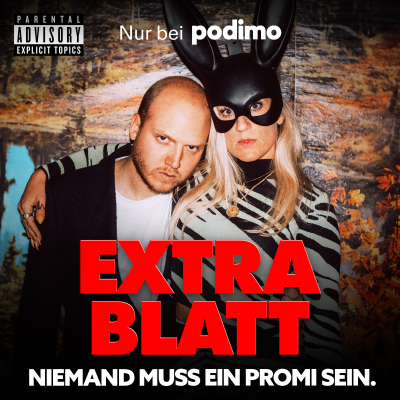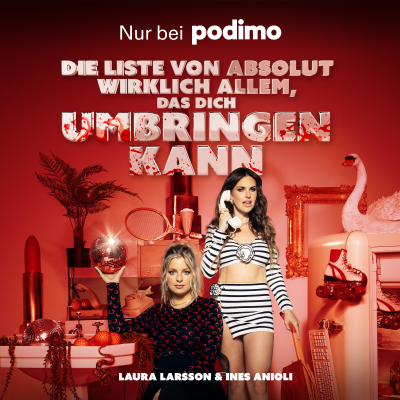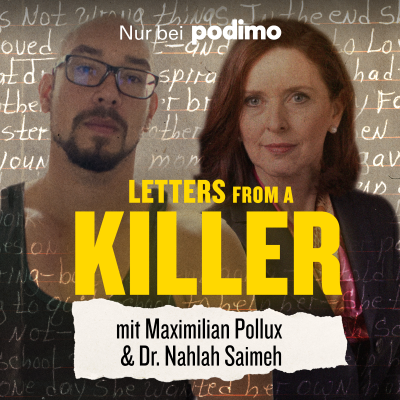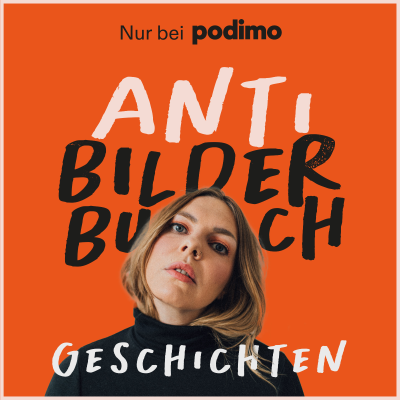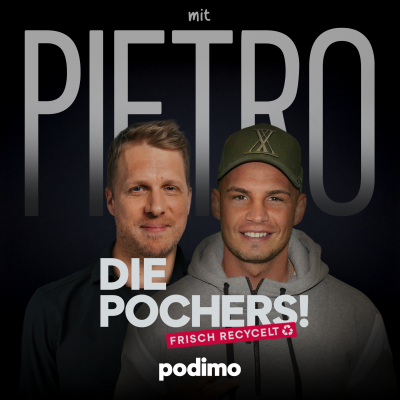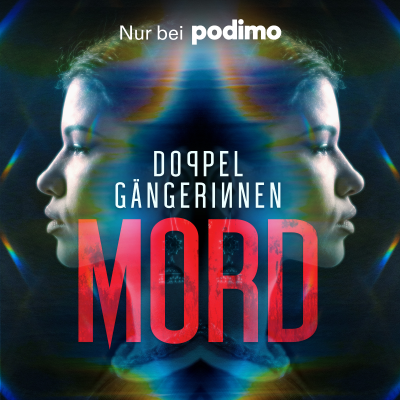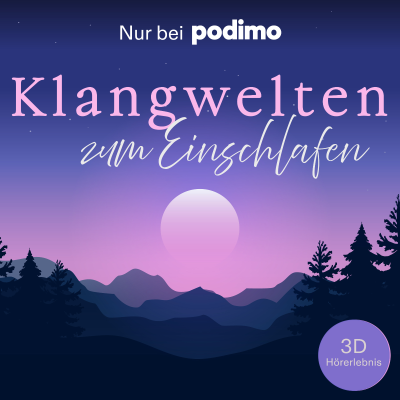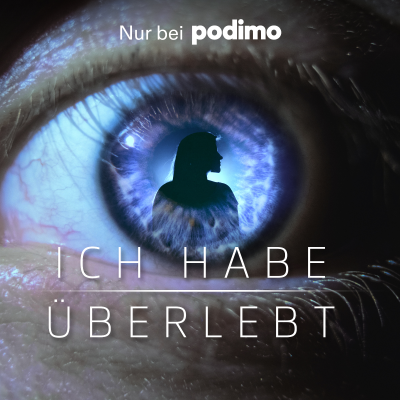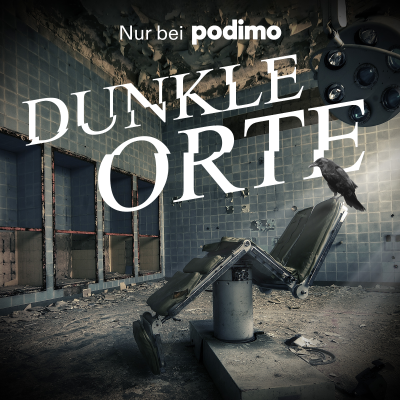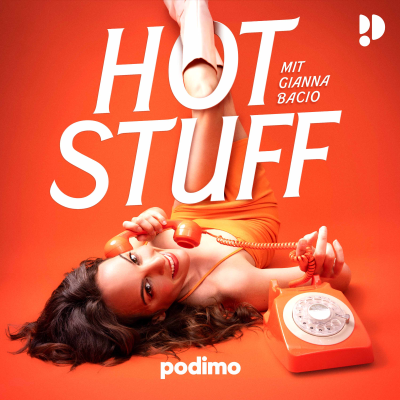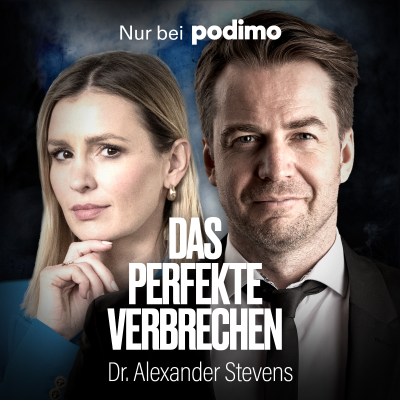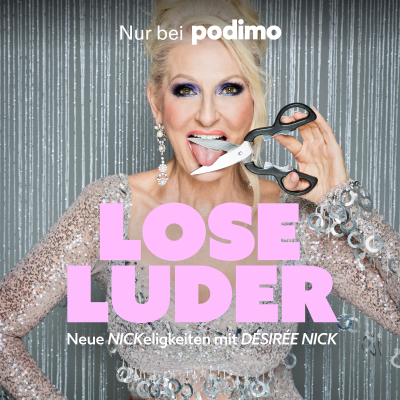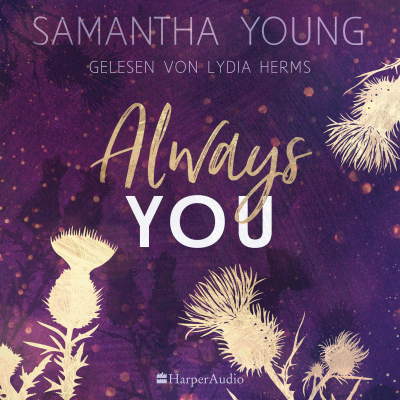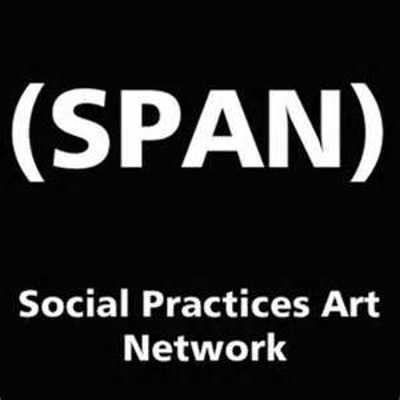
Interviews
Englisch
Kostenlos bei Podimo
Kostenlos hören bei Podimo
Starte jetzt und verbinde dich mit deinen Lieblingspodcaster*innen
- Vertraut von über 1 Mio. deutschen Hörer*innen
- Über 1.000 lokale Podcasts und Shows – nur bei Podimo
- Keine Zahlung nötig
Mehr Interviews
Social Practices Art Network (SPAN) is currently being developed by Jules Rochielle. The intention of this site is to create a resource for individuals, organizations, community groups and institutions that are interested in new genre arts forms and practices. It is meant to serve as a platform for a variety of social art practices.
Alle Folgen
13 FolgenInterview with Marisa Jahn
Of Ecuadorian and Chinese descent, Marisa Jahn is an artist, writer, and community organizer who believes that bridging culture and grassroots politics brings about innovative forms of social change. Marisa is the co-editor of Recipes for an Encounter, co-edited by Berin Golonu and Candice Hopkins and most recently edited Byproduct: On the Excess of Embedded Art Practices, a book that “investigates art practices that embed themselves within other non-artworld institutions (the government, industries, electoral politics), using the language and logic of their host to produce the artwork—or byproducts of the system.” Marisa’s work has been presented in public spaces in the US, Canada, Tajikistan, Kyrgyzstan, Estonia, Honduras, and Turkey and in venues such as the MIT Museum, ICA Philadelphia, The New Museum (New York), ISEA/Zero One, Eyebeam (NYC), the National Fine Art Museum of Taiwan, and in San Francisco at Yerba Buena Center for the Arts, the San Francisco Asian Art Museum, and the San Francisco Museum of Modern Art. In 2009 and 2010, Marisa was an artist-in-residence at MIT’s Media Lab, an artist teacher with Center for Urban Pedagogy, and designer-in-residence at Street Vendor Project, an organization that advances an agenda of economic opportunity, social justice, and civil rights for street vendors in New York City. As an art educator working with underrepresented youth since 1998, Jahn has partnered with and built award-winning education programs with organizations worldwide and was recognized by UNESCO in 2006 as a leading art educator. From 2000-2009, Marisa and Steve Shada co-directed “Pond: art, activism, & ideas,” a gallery-based non-profit organization dedicated to experimental art. In 2010, Marisa, with Stephanie Rothenberg and Rachel McIntire, co-founded REV-, a non-profit organization dedicated to furthering socially engaged art, design, and pedagogy. Marisa is also the deputy director of People’s Production House, an organization that empowers teens and historically excluded communities with skills to become journalists and media justice advocates. Marisa studied at UC Berkeley Massachusetts Institute of Technology (MIT). Her work as an artist and activist has been featured in international media including Art in America, Los Angeles Times, Frieze, Punk Planet, Clamor Magazine, The New York Times, San Francisco Chronicle, Make Magazine, Metropolis, the Discovery Channel, The Wall Street Journal, and Canadian Broadcasting Corporation. www.peoplesproductionhouse.org | www.marisajahn.com | www.rev-it.org
Interview with Chris Robbins of Ghana Think Tank
ounded in 2006, the Ghana ThinkTank is a worldwide network of think tanks creating strategies to resolve local problems in the "developed" world. The network began with think tanks from Ghana, Cuba and El Salvador, and has since expanded to include Serbia, Mexico and Ethiopia. In a recent project, we sent problems collected in Wales to think tanks in Ghana, Mexico, Serbia, Iran, and a group of incarcerated girls in the U.S. Prison system. These think tanks analyze the problems and propose solutions, which we put into action back in the community where the problems originated – whether those solutions seem impractical or brilliant. Some of these actions have produced workable solutions, but others have created intensely awkward situations, as we play out different cultures' assumptions about each other. It's become a way to explore the friction caused by solutions that are generated in one context and applied elsewhere, while revealing the hidden assumptions that govern cross-cultural interactions.
Interview: El Puente Lab Collaboration
The Moravia Video is a video production and youth mentorship program for young women in Moravia. This project is a collaboration between El Puente Lab and artists Margarita Vazquez Ponte and Maria Rosa Jijon. El barrio Moravia – The Moravia neighbourhood context: Moravia is a quarter of Medellín, in Colombia, that grew from the illegal settlement of communities that arrived in the city in the ‘sixties. The municipal dump, established in the same area in 1977, gave the inhabitants a chance for survival, based on recuperating any recyclable materials, which effectively turned Moravia into an emarginated quarter with its economy based on and sustained by trash. Due to social conflict in the early ‘eighties, and ‘thanks’ to the presence of the dump, Moravia reached its highest level of population: 17 thousand people in 1983. In 2004 Moravia and its catchment area reached 42 thousand inhabitants in just 44 hectares, becoming the zone with the highest population per square metre in the entire city of Medellín. This extreme population density and the indiscriminate appropriation of the land, has caused a decline in the quality of life and a lack of public space. In the same year, the Alcaldia de Medellín (municipality of Medellín) under the guidance of mayor Sergio Fajardo, began the Macroproyecto de Moravia, an integrated strategic plan to promote development through actions aimed toward recovering the urban area and improving the socio-cultural, socio-economic and environmental conditions, working on both physical and social components, such as public space, public hygiene, public housing and education. Only recently the resurgence of Medellin, founded on culture and education, has given results even in the Moravia district, the first and perhaps most important of which was the simple inclusion of the quarter in the urban fabric. A significant sign of the quarter’s rebirth is the Centro de Desarrollo Cultural de Moravia (CDCM), a centre whose aim is to promote culture, education and the arts, and which was strongly desired by the community; a project that is truly one of a kind, and that offers a highly valid model for the entire continent. In this interview you will hear from the team: El Puente Lab, Juan Sandoval, Margarita Vazquez Ponte and Rosa Jijon.
Interview: DODOLAB
DodoLab is an art and design based program lead by Lisa Hirmer and Andrew Hunter that researches, engages and responds to contemporary community challenges, with a particular focus on the natural world, social systems, the built environment and cities in transition. They employ creative public interventions that are truly collaborative, encourage and evolve out of dialogue and critical reflection, and that strive for tangible and meaningful outcomes. DodoLab is consistently interested in the barriers to adaptation and change and engaging the public in public through projects that involve individuals and organizations who bring a diversity of experience and expertise. DodoLab's always evolving methods of engagement reflect Hirmer and Hunter's backgrounds in art, design, architecture, education, writing, image making and installation. DodoLab uses the archetypal extinct species as its name/logo as a reminder that we need to consider the risks of isolated and narrowly defined adaptive strategies (the Dodo could not survive outside of its predator free island environment). Are we "Dead as a Dodo" or potentially "Going the way of the Dodo" if we do not learn to adapt and change and work together? The dodo reminds us that a lack of resiliency and a solo existence is a precarious strategy for survival. For generations, the Dodo has also been understood to have been a slow, lazy, glutinous bird with limited intelligence. It is now believed that this large flightless bird may have actually been reasonably intelligent and active and that the unflattering characteristics usually associated with the bird may have been the result of encounters with overfed, captive species – basically, specimens living in an artificial, human designed environment of overabundance. Our logo was designed by Canadian cartoonist Seth. DodoLab is supported by Musagetes Foundation and enhanced by commissioned collaborations with individuals and organizations in Canada and Internationally (including universities, municipalities, social service organizations and the arts).
Interview: Dee Hibert Jones
Dee Hibbert Jones is an Artist and the Associate Professor Art & Digital Arts New Media (DANM) Co-Director The Hub: Social Practice Arts Research Center, UC Santa Cruz. Her recent work is an investigation in the ways thoughts, objects and external power systems combine to create our collective and individual realities. Dee is interested in the ways we struggle to feel in control and define our own experiences, and how frequently we are blind to our own devices and methods of escape. She creates objects, installations and environments that reflect, question and challenge ways of seeing and thinking. I’m interested in the ways that we use objects and ideas to define our experiences, how they function as mnemonic devices and as emotional props against insecure moments.
